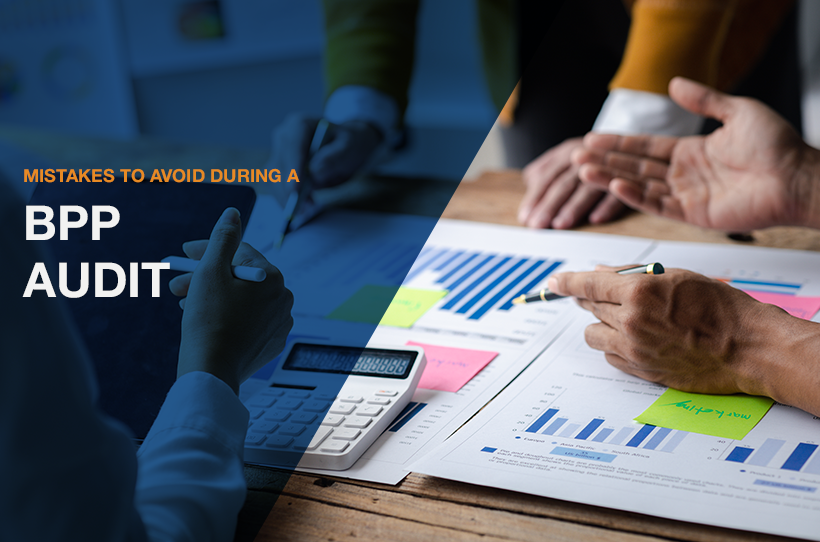Business personal property (BPP) audits are essential for ensuring that businesses accurately report their assets and comply with local tax regulations. These audits can have significant financial implications, and mistakes during the audit process can lead to penalties, increased tax liabilities, and other financial consequences. Understanding and avoiding common errors can help businesses navigate these audits more effectively. Paramount Property Tax Appeal is here to provide guidance and support throughout this process, leveraging our expertise to help you avoid these pitfalls.
Inadequate Preparation
Understanding Jurisdiction Requirements:
Each jurisdiction has unique guidelines and regulations for BPP audits. It’s crucial for businesses to familiarize themselves with these requirements to ensure compliance. For instance, some jurisdictions may have specific rules about what constitutes taxable personal property, how it should be reported, and the timelines for filing.
Reviewing Internal Policies and Procedures:
Regularly updating and reviewing internal policies ensures that your business practices align with current operations and audit requirements. This includes maintaining accurate and up-to-date records of all assets, understanding how assets are classified, and ensuring that all procedures for asset management and reporting are followed consistently.
Maintaining Robust Documentation:
One of the most critical aspects of audit preparation is maintaining detailed and organized documentation. This includes keeping records of all assets, their acquisition dates, costs, and depreciation schedules. Proper documentation makes it easier to provide auditors with the necessary information and can significantly reduce the time and effort required to complete the audit.
Poor Asset Classification
Proper Asset Classification:
Misclassifying assets can lead to significant errors in your property tax filings. For example, incorrectly classifying real estate as personal property or vice versa can result in overpayment or underpayment of taxes. It’s essential to have a clear understanding of how different assets should be classified according to local tax laws.
Depreciation Schedules:
Using the correct depreciation schedules is vital for accurate reporting. Tax laws often have specific depreciation methods and timelines that differ from those used in financial accounting. Ensuring that the depreciation applied for tax purposes matches the legal requirements can help avoid discrepancies that could trigger further scrutiny during an audit.
Incomplete or Inaccurate Asset Listings
Conducting Regular Asset Reviews:
Regular reviews of your fixed asset lists are essential to ensure accuracy. Many businesses make the mistake of not updating their asset records, leading to the inclusion of “ghost assets” – items that have been disposed of but are still listed. This can result in overreporting and overpayment of taxes. Regularly updating these lists to remove disposed assets and include newly acquired ones is crucial.
Tracking Asset Movement:
Assets often move between different locations within a business. It’s important to keep accurate records of these movements to ensure correct reporting. For example, an asset that has been transferred to a different branch or department should be reported based on its location as of the assessment date. Failing to do so can lead to discrepancies and potential issues during the audit.
Ignoring Intangible Property
Removing Intangibles:
One common mistake is including intangible assets, such as software and warranties, in BPP filings. These items are often non-taxable and should be excluded from your asset listings. It’s important to identify and correctly classify these intangible assets to avoid unnecessary tax liabilities.
Embedded Intangibles:
Sometimes, intangible values are embedded in the capitalized cost of tangible assets. For example, the software included in a computer system might be capitalized along with the hardware. It’s important to ensure that these embedded intangibles are not included in the taxable value of the tangible assets. Properly segregating these costs can help reduce your overall tax burden and ensure compliance with local tax laws.
Failing to Address Mergers and Acquisitions
Analyzing Changes from Mergers/Acquisitions:
Mergers and acquisitions can complicate the tracking and reporting of assets. When a business acquires another company or merges with one, the assets of the acquired company need to be correctly integrated into the acquiring company's asset records. This includes accurately recording the cost basis and understanding any tax implications related to the acquisition. Failing to do so can lead to misreporting and potential audit issues. Ensure all acquired assets are properly evaluated and classified to reflect their true value and condition.
Not Responding Promptly to Audit Notices
Timely Response to Audit Notices:
It is crucial to respond promptly to audit notices and requests for documentation. Delays can lead to penalties and increased scrutiny. Ensure that your business has a clear process in place for handling audit notices, including designating a responsible person or team to manage communications with auditors. Timely responses and complete documentation can facilitate a smoother audit process and demonstrate your business's commitment to compliance.
Engaging with Auditors:
Proactively engaging with auditors can help clarify any issues and provide additional information that might be needed. Establishing open and transparent communication can build a positive rapport with the audit team, making the process smoother and potentially reducing the likelihood of severe penalties.
Misunderstanding Audit Scope
Clarifying the Scope of the Audit:
It's essential to understand the full scope of the BPP audit to prepare adequately. Misunderstandings about what the audit will cover can lead to incomplete or incorrect documentation. Ensure you know which assets are being audited and the specific information the auditors require. This includes knowing the time periods under review and any specific valuation methods that will be applied.
Detailed Review of Audit Requests:
Carefully review any audit requests and notices to understand exactly what the auditors are looking for. If there are any ambiguities or unclear requests, don't hesitate to seek clarification from the auditors. Providing the right information upfront can prevent delays and additional requests for documentation.
Overlooking Potential Exemptions
Identifying Tax Exemptions:
Various jurisdictions offer exemptions for certain types of business personal property. Failing to identify and apply these exemptions can result in overpayment of taxes. Common exemptions might include inventory, research and development equipment, or certain types of manufacturing equipment. Ensure you are aware of all applicable exemptions and accurately apply them to your asset listings.
Documentation of Exempt Assets:
Properly documenting exempt assets is crucial. Maintain detailed records that clearly show why an asset qualifies for an exemption and ensure this documentation is readily available for auditors. This can include purchase records, usage logs, and any relevant correspondence with tax authorities confirming the exemption status.
By focusing on these additional key areas, businesses can further reduce the risk of errors during BPP audits. Thorough preparation, clear understanding of audit requirements, and proper application of exemptions are critical steps in ensuring a smooth audit process. Paramount Property Tax Appeal can assist you in navigating these complexities and help ensure your audit is managed effectively and efficiently.
.png)


.png?width=170&height=64&name=Logo%20320x120(2).png)





